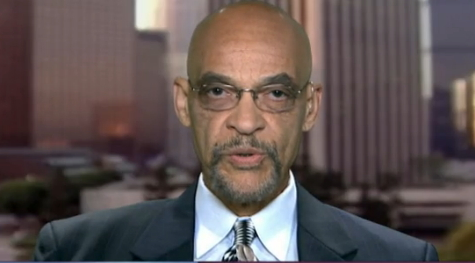Earl Ofari Hutchinson
What instantly caught my eye about the young man who strode in the door before the start of my weekly Los Angeles Urban Policy Roundtable issues forum was the serious, almost stern look on his face. I thought how could anyone so young be so serious. He quickly introduced himself and said that he had come to Los Angeles to get a feel for the city and that he was working on a project related to his studies and political activities. He had read my political columns over the years and had heard about the roundtable I hosted. He felt that this was a place where serious political issues were discussed, and he wanted to sit in.
Cory Booker did just that for an hour and a half listening intently to the discussion. We chatted briefly as he was leaving. I wished him luck in his endeavors. I also made a note keep an eye on this young man he might make a name for himself one day in politics.
In the years since, I kept a very close eye on Booker, his stint as Newark Mayor, New Jersey US Senator and now the culmination of his steady political rise, his announcement that he is a 2020 Democratic presidential candidate. But along the way in Booker’s upward political trajectory, he has repeatedly heard one thing. Is he the next Obama? The meaning behind the question is clear. Obama carefully fashioned a charismatic image, a refreshing and compelling message of hope and change, and a relentless drive to smash through a hard-political racial barrier to successfully grab the White House. Can Booker do the same?
Booker for his part has been careful not to fuel any expectation that he is trying be an Obama remake. That would be asking to much. Yet, now that he’s tossed his hat into the presidential rink, the Obama clone question will be repeatedly bandied around about him.
The brutal reality though is other than they are black, male, Democrats, a present and former senator, and savvy politically. There is more departure than similarity about both. Obama was first a crusading leftist community organizer. In his state offices and the US Senate, he consistently pushed a progressive agenda. In the early days of his presidential campaign, he continued to track left, lambasting the Iraq War, wealth inequality, Wall Street and corporate abuses, backed expanded civil rights protections, LGBT (though not gay marriage at first), gender rights, strong environmental protections, health care and criminal justice reforms. As the official Democratic presidential candidate and during his White House years, Obama inched closer to the corporate center, even infuriating at time progressives on has aggressive use of drones in counterinsurgency wars, his refusal to fight for single payer health care, and some blacks who demanded he do more to combat the astronomical jobless crisis of black males.
Booker started much more toward the opposite end of the political pole. He was a moderate who took much heat from progressives for snuggling up to Big Pharma and opposed cutting drug costs by permitting the purchase of Canadian drugs. He took even more heat from teacher’s unions when he loudly touted charter schools.
Booker now says that is a thing of the past. He’s now proudly declaring himself the progressive’s candidate on everything from Medicare for all to strong public schools to gay marriage to a wholesale overhaul of the gaping racial disparities in the criminal justice system. His political reboot will get him a long look by many progressives, though the suspicions about his corporate leaning moderate past will still dog him on the campaign trail.
However, the bigger question is will any of this do him any good when he talks to the one voter demographic that put Trump over the top. That demographic is rural, blue collar, less educated white males and females, in the Midwest and the Heartland. Many of them bought Obama’s message and voted for him twice in those states. Booker, like Obama, certainly doesn’t lack for charisma, even dynamism. But Trump showed with his win that times have changed and charisma and dynamism from a black man isn’t likely to be enough to move or at least neutralize a part of Trump’s base in the must win swing states.
Booker confronts one more potential obstacle that was not the deal breaking factor in Obama’s wins. That’s race. A big part of Trump’s appeal was his naked race and Obama baiting. He stirred the always dark, murky, and incendiary racial fear and loathing that lurks just beneath the political surface. He hasn’t let up. And much of Trump’s base revels in it.
There’s one more thing that Booker must deal with that Obama didn’t. There is two and maybe soon three big name Democratic presidential contenders who have already staked out their claim to the progressive mantel. They are Elizabeth Warren, Kamala Harris and Bernie Sanders. There are only so many progressive votes in the primary states to go around.
Well, Booker is now in, and the jockeying for the top Democratic party spot has begun. His candidacy will sink or swim on what he, not the other black man who sat in the Oval Office, can bring to the table.
Earl Ofari Hutchinson is an author and political analyst. He is the author of Why Black Lives Do Matter (Middle Passage Press) He is a weekly co-host of the Al Sharpton Show on Radio One. He is the host of the weekly Hutchinson Report on KPFK 90.7 FM Los Angeles and the Pacifica Network.

